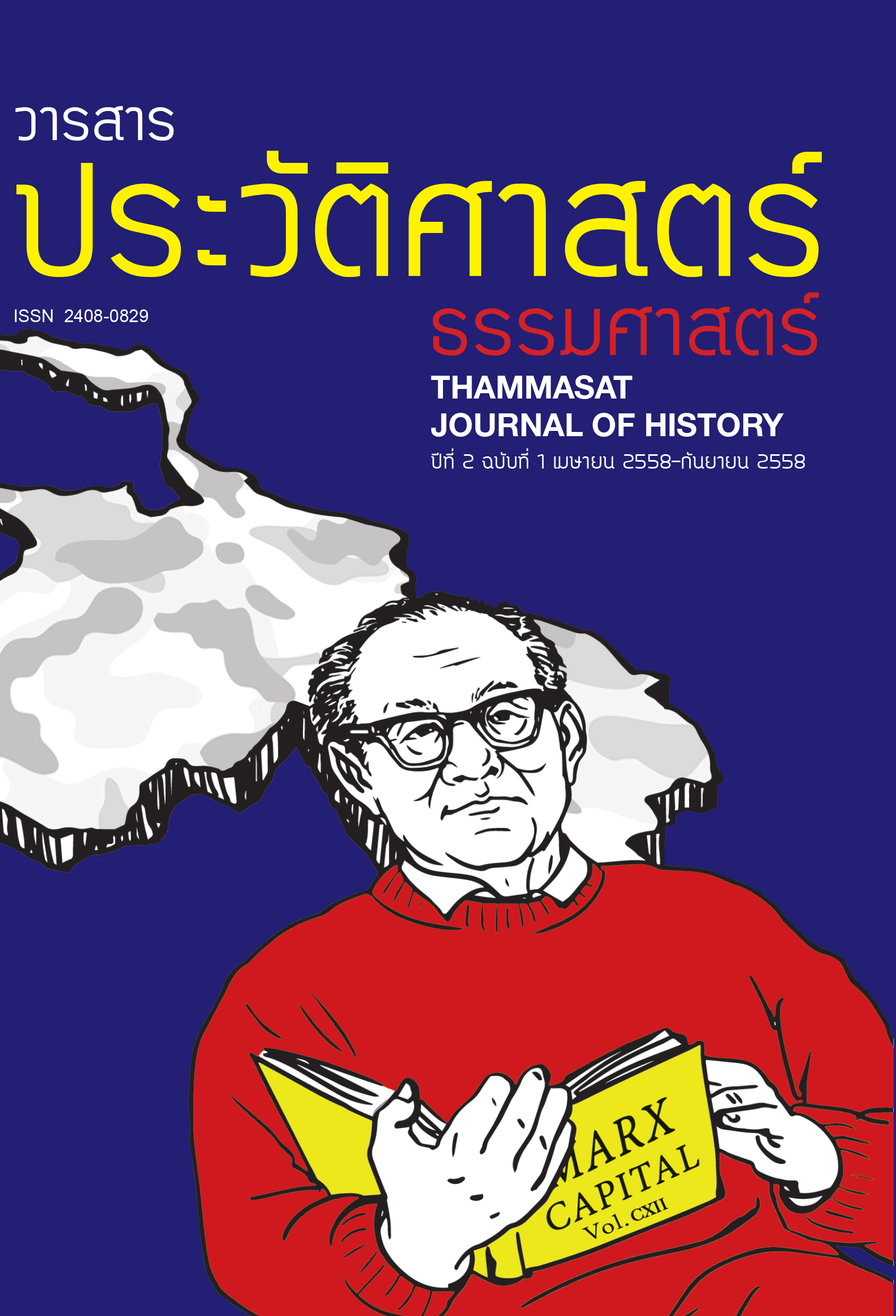Criticizing the Monarch: Treasonable Words and Political Development in Early Modern England
Main Article Content
Abstract
In England between the 16th and 18th centuries, laws and justice system for prosecuting the crime of “treasonable words” against the monarch were fueled largely by the events of Reformation, the English Civil War, and the French Revolution. During the period, the popular concern for the monarch’s private life and the royal circle had evolved in several aspects. The phenomena of slandering and gossiping the monarch can be viewed as one of indicators for making sense of the political development of the time. Christian ideals, dynamics of oral culture, and the development of modern political value had also played important roles in shaping the understanding of “treasonable words” and the legal procedure concerning the crime.
Article Details
Copyright of any paper published in this journal belongs to the Author and All rights reserved.
The opinions expressed in the journal are those of the authors. Department of History, Philosophy and English Literature’s Journal Committee, Editorial Board and Peer Reviewer do not have to agree with those comments.
References
Barrell, John. “Imagining the King’s Death: The Arrest of Richard Brothers.” History Workshop, no. 37 (1994): 1-32.
Barrell, John. Imagining the King’s Death: Figurative Treason, Fantasies of Regicide 1793-1796. Oxford: Oxford University Press, 2000.
Bellamy, John Gilbert. The Law of Treason in England in the Later Middle Ages. London: Cambridge University Press, 1970.
Cowan, Brian William. The Social Life of Coffee: The Emergence of the British Coffeehouse. New Haven: Yale University Press, 2005.
Cressy, David. Dangerous Talk: Scandalous, Seditious, and Treasonable Speech in Pre-Modern England. Oxford: Oxford University Press, 2010.
Farge, Arlette. Subversive Words: Public Opinion in Eighteenth-Century France. Pennsylvania.: Pennsylvania State University Press, 1995.
Fox, Adam. “Rumour, News and Popular Political Opinion in Elizabethan and Early Stuart England.” The Historical Journal 40, no. 3 (1997): 597-620.
Graham, Lisa Jane. If the King Only Knew: Seditious Speech in the Reign of Louis Xv. Charlottesville: University Press of Virginia, 2000.
Howell, Thomas Bayly. A Complete Collection of State Trials and Proceedings for High Treason and Other Crimes and Misdemeanors from the Earliest Period to the Year 1783. Vol. 3. London: T.C. Hansard, 1816.
Israel, Jonathan I. Radical Enlightenment: Philosophy and the Making of Modernity 1650-1750. Oxford: Oxford University Press, 2002.
Kantorowicz, Ernst Hartwig. The King’s Two Bodies: A Study in Mediaeval Political Theology. Princeton, N.J.,: Princeton University Press, 1957.
Kelly, G. A. “From Lèse-Majesté to Lèse-Nation: Treason in Eighteenth-Century France.” Journal of the History of Ideas 42, no. 2 (1981): 269-286.
Lodge, Eleanor Constance, and Gladys Amy Thornton. English Constitutional Documents 1307-1485. [S.l.]: C.U.P., 1935. O’Callaghan, Patrick. Refining Privacy in Tort Law. Heidelberg: Springer, 2012.
Pincus, Steve. “Coffee Politicians Does Create”: Coffeehouses and Restoration Political Culture.” The Journal of Modern History 67, no. 4 (1995): 807-834.
Rezneck, Samuel. “Constructive Treason by Words in the Fifteenth Century.” The American Historical Review 33, no. 3 (1928): 544-552.
Shagan, Ethan H. “Rumours and Popular Politics in the Reign of Henry Viii.” In The Politics of the Excluded, C.1500-1850, edited by Tim Harris, ix, 295. Basingstoke England: Palgrave, 2001.
Shuger, Debora K. Censorship and Cultural Sensibility: The Regulation of Language in Tudor-Stuart England. Philadelphia: University of Pennsylvania Press, 2006.
The Statutes of the Realm. London: G. Eyre and A. Strahan, printers to the King, 1810-28.
Thornley, Isobel D. “Treason by Words in the Fifteenth Century.” The English Historical Review 32, no. 128 (1917): 556-561.


